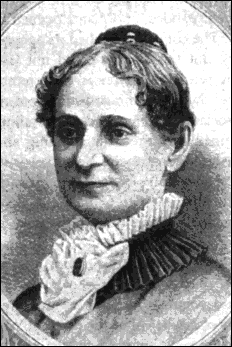Discoveries
Lives that Created
Today's Medicine
John Galbraith Simmons
(Houghton Mifflin)
So we'll drink we'll drink we'll drink to Lydia Pinkham,
Savior of the human race,
She invented a Vegetable Compound,
Efficacious in every way.
Now Mrs. Jones, she had her problems:
Couldn't hardly take a pee ---
So she drank she drank she drank six bottles of Compound,
Now they pipes her to the sea.
 In Doctors and Discoveries, Simmons has come up with 100 or so figures out of the past and present who influenced or are continuing to influence modern medicine. They range in chronology from Hippocrates, Celsus and Galen to Macfarlane Burnet (immune system theory), Raymond Damadian (MRI), Bert Vogelstein (cancer), and Robert Gallo and Luc Montagnier (AIDS).
In Doctors and Discoveries, Simmons has come up with 100 or so figures out of the past and present who influenced or are continuing to influence modern medicine. They range in chronology from Hippocrates, Celsus and Galen to Macfarlane Burnet (immune system theory), Raymond Damadian (MRI), Bert Vogelstein (cancer), and Robert Gallo and Luc Montagnier (AIDS).
Each of the individuals gets four or five pages --- date and place of birth, names of parents, chronology, and a brief discussion of what they did and how they did it and why it is important for today's medical practice. But, given its dowdy nature, this is not a book you would leave on your bedtable to nibble on each evening unless you wanted something to put you to sleep.
The style is stolid, the facts predictable, those chosen for inclusion --- at least those before the twentieth century --- are, in most cases, to be expected: William Harvey, Charles Darwin, Louis Pasteur, Robert Koch, Joseph Lister, Florence Nightingale. Harvey Cushing, the famous WWI brain surgeon appears, along with a rather droll anecdote about one of his lesser operations. In the midst of it, he inadvertently tore open one of the cranial arteries --- always fatal. The patient was still conscious and chanced to ask him how it was going, and Cushing replied, "You must not worry now. In a very few minutes you are going to feel better."
Once we pass 1900, some of those listed seem a bit odd, especially in the world of psychiatry. Freud appears, but not Jung. There's a section devoted to Melanie Klein whose theories about the psychology of children were somewhat strange (she had the audacity to analyze her own son; in later life, she fought bitterly with her daughter, also a psychoanalyst.) There is no mention of the beginnings of group therapy, nor the startling works on family therapy by Jay Haley, Milton Erickson, and Mara Selva Palazzoli.
Even more bizarre is the section --- listed pretentiously as Omnium-Gatherum which includes Daniel David Palmer (Chiropractic, "magnetic healer"), Samuel Hahnemann (father of Homeopathy) and Paul de Kruif --- the latter who did nothing more noteworthy in the field than write a maudlin page-turner called The Microbe Hunters which gripped most of us when we were just entering the age of reason. (Sinclair Lewis might equally well have been listed for his dramatic Arrowsmith: who of us so many years ago were not moved to tears as the honest, self-sacrificing doctor picked up his fatal last cigarette?)
Well, nothing lost. This volume has the smell of the first year college science class all over it. If nothing else, we must compliment Simmons for the inclusion of Lydia Pinkham (1819 - 1883). Her world-famous Vegetable Compound was a sure cure for "All Weaknesses of the generative organs of either sex...and for all the diseases of the Kidneys it is the Greatest Remedy in the world."
Whatever it contained, it inspired not only many imitators and much prosperity for her heirs, but helped to inspire a lascivious song that, before he gave up strong drink, my now-austere lawyer brother used to sing at family get-togethers:
Now Mrs. Brown, she had her problems,
Couldn't satisfy at all;
So she drank she drank she drank six bottles of Compound ---
Now she takes them...balls and all.
So we'll drink we'll drink we'll drink to Lydia Pinkham
Savior of the human race
She invented a Vegetable Compound
Efficacious in every way.